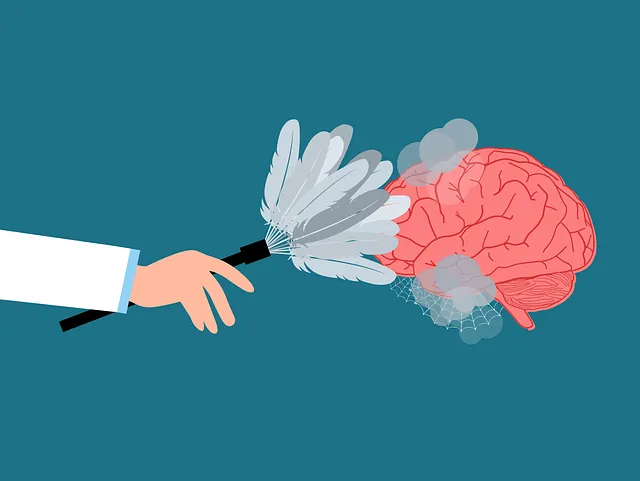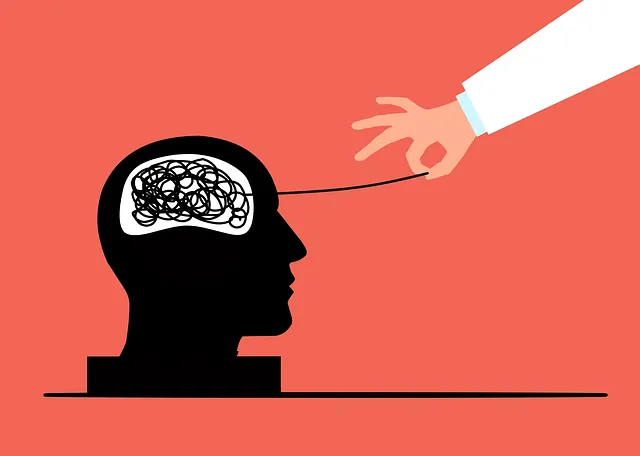Emotional Intelligence (EI) is a powerful driver of personal and professional growth, offering benefits like self-awareness, stress management, and improved relationships. Kaiser Permanente's dedicated mental health department in Parker provides vital support through accessible resources and expert guidance, including their phone line. Cultivating EI involves enhancing self-awareness, developing empathy, and practicing effective communication. A testament to its power is Parker's story of overcoming severe depression with the help of Kaiser Permanente's services, leading to improved emotional well-being and decision-making skills.
Emotional intelligence (EI) is a powerful tool for personal growth and thriving in today’s complex world. This article explores the concept of EI, highlighting its potential to transform lives. We delve into how organizations like Kaiser Permanente’s mental health department play a pivotal role in supporting emotional well-being through their resources and services. Learn practical strategies to build EI step-by-step, and be inspired by Parker’s journey—a compelling case study showcasing the transformative power of emotional growth and recovery. Contact Kaiser Permanente’s mental health department at [phone number] for support.
- Understanding Emotional Intelligence: Unlocking the Potential
- The Role of Kaiser Permanente in Mental Health Support
- Strategies for Building Emotional Intelligence Step-by-Step
- Parker's Journey: A Case Study in Emotional Growth and Recovery
Understanding Emotional Intelligence: Unlocking the Potential

Emotional intelligence (EI) is a powerful tool for personal and professional growth, offering a deeper understanding of oneself and others. It involves recognizing and managing emotions, both your own and those around you, to make thoughtful decisions and foster meaningful connections. The Kaiser Permanente mental health department phone number Parker can serve as a valuable resource for individuals seeking support in this journey.
By cultivating EI, individuals can enhance their self-awareness, making it easier to recognize triggers and manage stress effectively. This leads to improved emotional regulation, allowing one to respond to challenging situations with calmness and clarity. Furthermore, building empathy becomes more accessible, enabling better understanding and connection with colleagues, friends, and family. The Mental Wellness Podcast Series Production can offer valuable insights and practical tips for developing these essential skills, including self-esteem improvement and empathy building strategies.
The Role of Kaiser Permanente in Mental Health Support

Kaiser Permanente, a renowned healthcare organization, plays a pivotal role in supporting mental well-being through its dedicated mental health department. With a focus on comprehensive care, they offer various services to their members, including those in Parker and surrounding areas. The department’s expertise lies in providing personalized solutions for stress reduction methods, catering to diverse individual needs.
Through compassionate cultivation practices and emotional healing processes, Kaiser Permanente aims to empower individuals to manage and overcome mental health challenges. Their phone line, often sought after by those in need, serves as a gateway to professional guidance, ensuring that residents of Parker have access to the support they require. This initiative reflects the organization’s commitment to fostering resilient communities and improving overall mental health outcomes.
Strategies for Building Emotional Intelligence Step-by-Step

Building emotional intelligence (EI) is a transformative process that can significantly enhance your personal and professional life. Here’s a step-by-step guide to help you develop this vital skill, drawing insights from experts like those within the Kaiser Permanente mental health department (contact them via their phone number for more resources).
Start by cultivating self-awareness—the cornerstone of EI. Regularly reflect on your emotions, recognizing both your strengths and weaknesses in managing them. This can be facilitated through practices such as journaling or even simple mindfulness meditation. Next, focus on understanding the emotions of others. Empathy is a key component of EI; listen actively to those around you, observe their body language, and try to see situations from their perspective. Additionally, learning effective communication skills will help express your feelings clearly and resolve conflicts constructively. Consider incorporating stress management techniques like deep breathing exercises or regular physical activity into your routine. These strategies not only improve mood management but also enhance overall well-being.
Parker's Journey: A Case Study in Emotional Growth and Recovery

Parker’s story is a powerful example of emotional intelligence (EI) in action, highlighting the transformative power of self-awareness and mental health support. At his lowest point, Parker struggled with severe depression, which significantly impacted his personal and professional life. He reached out to the Kaiser Permanente mental health department for help, taking that crucial step towards recovery.
Through a series of intensive therapy sessions and self-awareness exercises, Parker began to unravel the underlying causes of his emotional turmoil. The support staff at Kaiser Permanente, experienced in risk management planning for mental health professionals, guided him effectively. They helped Parker develop valuable coping strategies and enhance his EI skills. Over time, he learned to manage his emotions, improve his relationships, and make more thoughtful decisions. This journey of emotional growth not only led to depression prevention but also empowered Parker with the tools to navigate future challenges, ensuring a brighter and more balanced life.
Emotional intelligence, a powerful tool for personal growth and connection, can be cultivated through understanding its fundamentals and implementing practical strategies. As demonstrated by Parker’s journey, with the right support, such as that offered by the Kaiser Permanente mental health department (phone number available upon request), individuals can experience remarkable emotional healing and transformation. By embracing these steps and learning from inspiring case studies, we can all work towards building a more resilient and emotionally intelligent future for ourselves and our communities.






